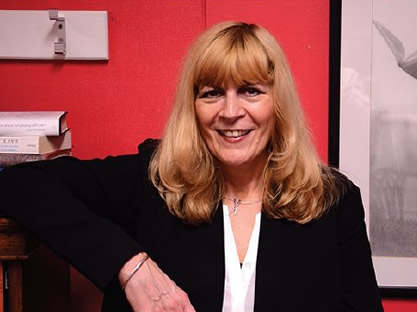February 27, 2019
Read Your Way to a Better Mood
 Do you love to curl up with your tablet or a printed book and read to relax? “Readers
feel happier about themselves and their lives,” confirms Josie Billington, professor
and deputy director of The Centre for Research and Reading, Literature, and Society
at the University of Liverpool in England. Her research has proved that reading and
participating in shared reading groups are good for your mental health and well-being.
Do you love to curl up with your tablet or a printed book and read to relax? “Readers
feel happier about themselves and their lives,” confirms Josie Billington, professor
and deputy director of The Centre for Research and Reading, Literature, and Society
at the University of Liverpool in England. Her research has proved that reading and
participating in shared reading groups are good for your mental health and well-being.
Join reading expert Billington at the University’s Center for Contemplative Studies at 700 South Church Street on Wednesday, March 6, from 5 to 6 p.m. for her “Literature and Health” talk. She will share her findings about the links between reading and health and will demonstrate the benefits of group reading by sharing short stories and poetry out loud. The program is free and open to the public.
“Literature and literary reading are possibly the best forms of thinking that humans in need or trouble will ever have,” she noted in her 2016 book Is Literature Healthy? In her extensive research into depression, dementia, and chronic pain, Billington found that reading for pleasure can help with sleep; it can help to fight feelings of stress and depression; it promotes feelings of relaxation; and it helps with levels of self-esteem, among other benefits.
Her studies on depression found that patients who joined a reading group saw themselves as members of the group: They felt more confident and were more willing to talk, listen, and interact with the other members.
WCU’s Center for Contemplative Studies was founded in 2011 to offer the campus community opportunities to understand, apply, and create a contemplative approach to life and learning. Through such contemplative practices as yoga, mindfulness meditation, and T'ai Chi Ch'uan, the center provides experiences for individuals, educators, and researchers to improve their mental health and wellbeing. Many of the programs are free and open to the public.
